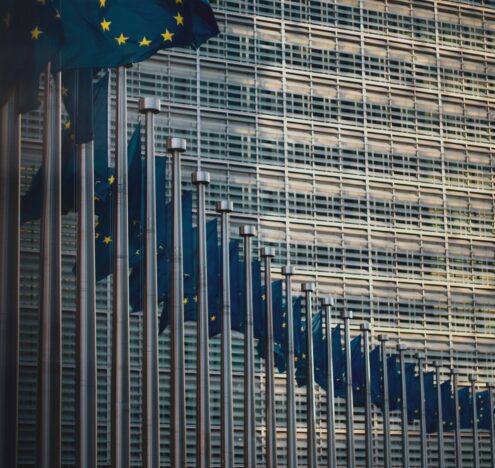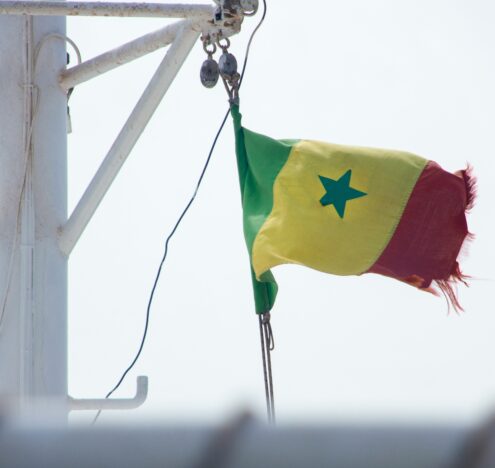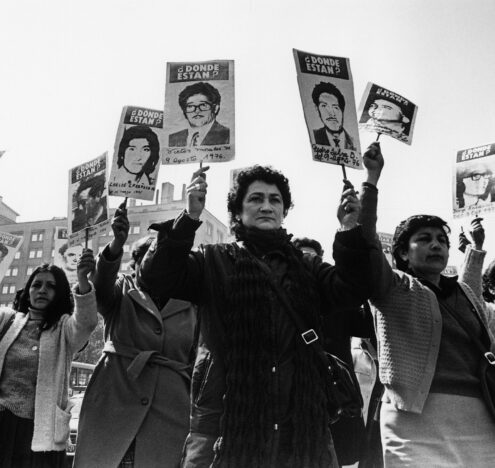Despite evidence of increasing state engagement with the Women, Peace, and Security (WPS) agenda around the world, critical progress toward securing women’s rights, inclusion, empowerment, and leadership is not advancing rapidly enough, and proponents are struggling to see WPS achieve its aims. Major crises, including the COVID-19 pandemic and climate change, are heightening global levels of gender inequality and human insecurity, compounded by increasing hypermasculine authoritarianism, and militarism reinforcing the dominance of state-led security approaches.
Too often we see inconsistent or insincere approaches by states, poorly measured results, and insufficient outcomes on WPS and broader gender equality programs and objectives. Although multi-sectoral communication and collaboration on WPS are needed now more than ever, government agencies, militaries, civil society organizations, and academics too often ignore or talk past one another, in WPS siloes. Partnerships between multiple international actors that stimulate fresh ideas across traditional and non-traditional security issues are therefore critical to promoting the engagement and leadership of diverse groups of women, and advancing progress on the WPS agenda.
In 2017, the United States became the first state to adopt a comprehensive law on WPS, through the signing of the Women, Peace, and Security Act. The 2019 WPS Strategy — the de facto US WPS National Action Plan — mandates that the Department of Defense, the Department of State, the Department of Homeland Security, and the United States Agency for International Development (USAID) develop individual WPS implementing strategies and budgets. In growing recognition of the operational and ethical drawbacks of an exclusive military implementation of the Pentagon’s WPS Strategy, US combatant commands are engaging and collaborating with non-state actors, including non-governmental organizations and academia, on an expanding range of WPS issues. In 2020, with the aim of increasing the effectiveness of regional US WPS efforts, the Office of Women, Peace and Security at the United States Indo-Pacific Command (USINDOPACOM) embarked on a unique multi-sector partnership with the Honolulu-based think tank Pacific Forum International.
WHAT CREATIVE IMPLEMENTATION LOOKS LIKE
In demonstrating how they interpret and plan to implement the WPS agenda, over 100 states have produced WPS National Action Plans based on the provisions within UN Security Council resolution 1325, the first WPS resolution, and nine others. It is increasingly recognized that a broad array of international, national, and local actors must be engaged to effectively implement a WPS national action plan.
Multi-stakeholder partnerships provide a unique opportunity for stakeholders to collaborate, evolve, and strive to achieve the global goals at the heart of the WPS agenda,
By fiscal year 2021, Department of Defense funding for WPS had increased to an estimated $8.5 million. While increases in WPS budgeting are positive, the sum remains concerningly small compared to the over $700 billion in total defense spending in the fiscal year. Challenged to implement transformative policies and programs with such a constrained budgetary allocation, the partnership between Pacific Forum and USINDOPACOM represented a necessarily creative application of the agency’s funding allocation and was established to implement WPS programming related to UN Security Council resolution 1325’s 20th anniversary.
Throughout the partnership, the USINDOPACOM core team consisted of four full-time personnel dedicated to advancing WPS within their mission. This included the Command Gender Advisor and program lead, as well as a WPS Curriculum Developer/Trainer, Gender Analyst, and WPS Planner. Pacific Forum’s WPS work was implemented by several senior staff members, a WPS Research Advisor, and three resident WPS Fellows. Additionally, USINDOPACOM funding enabled the engagement of three gender and security experts as advisors to Pacific Forum. Reflecting on the partnership, Pacific Forum Vice President Crystal Pryor remarked, “our small but mighty team punched well above its weight in executing 10 major events, publishing five WPS-related papers, and establishing two new foundational WPS resources in less than one year.”
Launched in the early days of the COVID-19 pandemic, organizational adaptability was key to the success of the partnership. On any given day, team members could be found holding virtual planning sessions for WPS events, using internet-based collaboration tools to co-write WPS-focused articles, and meeting online with gender experts and civil society practitioners to build knowledge and expertise on regional WPS issues.
As the military apparatus increasingly listens to and foregrounds diverse women’s voices and nuanced gender perspectives on security, including through civil society representatives, grassroots leaders, and academics, greater emphasis must be placed on human rather than state security.
Key programmatic outputs achieved through the Pacific Forum–USINDOPACOM partnership include multiple public webinars and training sessions, as well as numerous publications on WPS-related topics. A selection of these recorded and publicly available webinars include: “Rising Together: How the Defense Sector Advances Women, Peace and Security,” featuring senior women military officers from Quadrilateral Security Dialogue countries; “Maritime Security and the Environment: How Women Protect and Defend Southeast Asia’s Future Prosperity,” which brought together experts and practitioners from academia, think tanks, and non-governmental organizations; and “Military-Civilian Medical Support: Why Women Matter in Crisis Leadership, Decision-making, Planning, and Response.” Pacific Forum and USINDOPACOM teams also collaborated closely to produce a major two-day hybrid virtual/in-person international conference, “Advancing WPS in the Indo-Pacific.” These activities allowed the think tank to rapidly establish a footprint in the WPS and human security arena, moving beyond its more familiar traditional security focus in the region.
Importantly, the partnership not only enabled programmatic outputs but helped forge new cross-regional connections and relationships between specialist networks and WPS stakeholders. Women experts from multiple sectors — as well as male WPS allies — were provided a public platform to offer their perspectives on key WPS topics, including cybersecurity and technology security, counterterrorism, and maritime security. Together, we elevated the profiles of exceptional, qualified, and inspiring women experts, military personnel, public servants, scholars, civil society leaders, and even entrepreneurs.
Drawing on our collective Pacific Forum–USINDOPACOM networks meant bringing together a wider range of speakers, while also attracting a variety of audiences. Critically, our webinars and events enabled access to more diverse groups of women who could share their unique on-the-ground perspectives and experiences from Myanmar to the Philippines, India to Australia, Malaysia to Fiji, and beyond. Through primarily virtual platforms, attendees experienced the interactive, de-siloed, and at times provocative nature of Q&A sessions with multi-sector panelists, even if physical interactions were limited.
Addressing the need to proactively dispel myths of women’s lesser expertise, authority, and experience in international affairs, our webinars and events helped affirm the value of elevating women from multiple sectors in discussing matters ranging across foreign policy, security, diplomacy, and development topics. Reflecting on this, Sharon Feist, Gender Advisor to U.S. Indo-Pacific Command, noted that, “The perspectives, experiences, and representation of previously unheard voices are critical to a more holistic understanding of security within the region. Women can expand our definition of what makes us secure, and inform how to provide an inclusive security that lasts.”
In expanding the multi-sectoral scope of women international security experts across the Indo-Pacific region, our partnership also inspired the development of the Pacific Forum’s Women Security Experts Directory. The Directory now serves as a resource for identifying and elevating gender, peace, and security experts, thereby fast-tracking progress toward women’s representation and meaningful participation in Indo-Pacific discussions and decision-making. In addition, recognizing the importance of transparency and self-assessment on matters of diversity, equity, and inclusion, Pacific Forum developed an event Gender Tracker to visualize gender balance within our webinars, events, and programs.
LESSONS FROM THE MULTI-SECTOR PARTNERSHIP
In reflecting on the wider impacts of the collaboration between Pacific Forum and USINDOPACOM throughout 2020 and 2021, it is evident that multi-sectoral partnerships can have an important boomerang effect. Through sharing and debating WPS topics, these partnerships become unique conduits for military members to analyze and send information back up the DOD chain of command to inform national policymaking on WPS. Furthermore, through this partnership, the USINDOPACOM Office of WPS was given greater latitude to succeed. “Multisector partnerships are a force-multiplier and enable access to, and provide platforms for, previously untapped perspectives and experiences. They facilitate even more innovative partnerships in a resource-constrained environment, and contribute key insights for how Indo-Pacific defense and security sectors can improve WPS implementation,” comments Feist. The partnership directly helped to navigate funding challenges and maximize available resources, and break down resistance to gender mainstreaming initiatives in traditionally masculine environments, enabling greater progress on WPS outcomes.
Still, while the partnership enabled new connections and networks across the Indo-Pacific region and beyond, it is evident that ongoing engagement and mutual learning with certain stakeholder groups — in particular, civil society — must be elevated to achieve WPS success. In fact, in the 2022 US Government WPS Congressional Report, a key “metric and milestone” for FY2021 is, “Departments and Agencies will coordinate two public consultations with U.S. based civil society organizations a year.” Through our partnership and events, it is evident that even more consultation with local groups and women leaders is crucial.
Mavic Cabrera Balleza, Founder and Chief Executive Officer of the Global Network of Women Peacebuilders, and a guest speaker at Pacific Forum and USINDOPACOM’s “Advancing Women, Peace and Security in the Indo-Pacific” international conference, had this to say on the subject:
“The WPS Agenda is the most groundbreaking set of international laws to come out of the UN Security Council. It elevated the centrality of women’s rights and gender equality as requisites for international peace and security. However, this will only be realized if the WPS Resolutions are effectively implemented, which necessitates multi-stakeholder partnerships where local women peacebuilders are equal partners. Local women who live through violent conflicts want nothing else but sustainable peace. They have invaluable insights to offer on conflict resolution and conflict prevention. It is in everybody’s best interest when local women participate fully and equally in decision-making on peace and security.”
Indeed, as a recent Women’s International League for Peace and Freedom report notes, “engagement with civil society can be tokenistic, with civil society organizations consulted and given advisory status, without meaningful partnership in decision-making processes.”
While the voices and expertise of civil society activists were elevated through our webinars, many key insights around the empowerment and engagement of women’s unique expertise still need to be translated and operationalized within WPS policy and programs. It is leaders and officers (of all genders!) in US WPS implementing agencies, including the DOD, that should continue to strive toward greater openness, commitment, and action in this regard. Indeed, shifting the security apparatus toward a greater focus on feminist approaches to pacifism, foreign policy, and human security must continue to be centered if positive peace is to be achieved.
WHAT’S NEXT?
The first year of our Pacific Forum-USINDOPACOM partnership generated many positive outcomes in the context of the WPS agenda. We launched new dialogues, stimulated novel areas of research, and formed multiple relationships across sectors, all of which we hope will redound to the benefit of the region. As proof of the success of our approach, the partnership has been extended into 2022/23, which will allow it to develop and strengthen.
Yet, much more needs to be done to achieve the aims of the WPS agenda and the US WPS Strategy. As asserted by the 2015 Global Study on UN Security Council resolution 1325’s implementation, strengthening interaction and information flows across systems (including the UN itself) is essential to limit fragmentation and increase effectiveness. As such, we must continuously build bridges between state and non-state actors, specifically between lawmakers, military decision-makers, and civil society organizations.
As the military apparatus increasingly listens to and foregrounds diverse women’s voices and nuanced gender perspectives on security, including through civil society representatives, grassroots leaders, and academics, greater emphasis must be placed on human rather than state security. Multi-stakeholder partnerships provide a unique opportunity for stakeholders to collaborate, evolve, and strive to achieve the global goals at the heart of the WPS agenda, to which the United States — and so many other states — have committed. Moving forward, it will be increasingly critical that all stakeholders and partners hold each other to account in upholding the WPS commitments of peace and stability for all.
Tevvi Bullock is a PhD Candidate at Monash University’s Gender, Peace and Security Centre, a non-resident Women, Peace, and Security Fellow and Young Leader at Pacific Forum International, and a Gender, Peace, and Security Next Generation Fellow ‘21/22 at Women in International Security. In 2022, she was selected as a Young Woman to Watch by Young Australians in International Affairs. Her research agenda broadly encompasses gender, peace and security, the WPS agenda, climate and ecological crises, humanitarian action, and men and masculinities, with a focus on the region of Asia and the Pacific.
Maryruth Belsey Priebe is a non-resident Women, Peace, and Security Fellow at Pacific Forum International. Using social science, feminist foreign policy perspectives/analyses/theories, and data analysis, her research focuses on the nexus of gender, climate change, and peace and security in the Asia-Pacific. Her circular food economy policy work was selected for inclusion in the OpenIDEO Food Systems Game Changers Lab, and she has held several research and fellowship positions focused on women’s leadership. She is also a member of Harvard’s Climate Leaders Program and the Research Network on Women, Peace, and Security, and is a volunteer for multiple gender-climate causes.
The authors are affiliated with Pacific Forum International as WPS Fellows. Pacific Forum WPS fellowships are supported in part by funding from the US Department of Defense. Any opinions, findings, conclusions or recommendations expressed in this article are those of the authors and do not necessarily reflect the views of either entity.





















